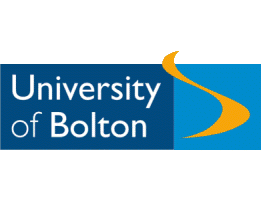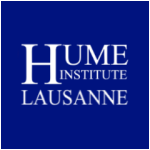Over the past 30 or 40 years, dentistry has developed rapidly. With new technologies and techniques, what was once cutting edge is now more mainstream. As a consequence, dentists are developing specialisms in areas such as implants, orthodontics, clear aligner, and the growing overlapping field of aesthetics (Botox, fillers and other non-surgical interventions).
The pinnacle of academic achievement is a PhD. We are pleased to be able to provide dentists who are active in general practice, like myself, with the opportunity to pursue and expand their professional and personal horizons through doctoral study.
This programme is the culmination of over twenty years of experience in designing and delivering academic opportunities tailored to meet the unique needs of general dentists. I look forward to welcoming and meeting likeminded colleagues who wish to pursue a possible career in academia or gain further insights into the practice of dentistry, thereby adding to our body of professional knowledge.
Professorship Stewart Harding graduated from Newcastle Dental School in 1982 and is currently Professor at BPP University, and Dean of The City of London Dental School. Since qualifying, he has held various full and part-time hospital appointments. Stewart introduced osseo-integrated implants into his restorative and orthodontic practice in 1985, subsequently successfully placing and restoring thousands of implants.
Stewart pioneered post graduate education for general practitioners wishing to attain recognised training in the area of implant dentistry and was instrumental in designing and instigating several postgraduate degree programmes in the field. Stewart began delivering implant training programmes in 1992, helping many dentists towards their ultimate goal of introducing implants to their practices. This led to the development of Master’s programmes in 2003 with the University of Warwick, culminating in the recognition of the MSc in Implant Dentistry by the General Dental Council as an additional professional qualification.
In 2010 Stewart founded the City of London Dental School (CoLDS) which now offers 12 MSc programmes covering all the principal dental specialties. More than 200 students have completed their MSc with CoLDS, making CoLDS the largest and most successful provider of its kind in the UK. The school offers various levels of post graduate education from CPD to degree level. Stewart has also guided similar postgraduate programmes in Singapore, Dubai, Sudan and Ghana and now has plans to expand into India and Pakistan.
Stewart is the developer and inventor of the Osteo-Ti dental implant system (the most widely used British implant in the UK) and has patented several other implant applications. The system continues to evolve and the company is collaborating with several manufacturers to develop digitally driven prosthetic protocols.
He has been a medico-legal expert witness since 2010 and manages between 50 to 70 cases a year. In particular, he has experience of managing claims against dentists.
Stewart is involved in multiple research projects into the response of bone to substitute bone materials and has authored numerous articles on the subject of implantology, lecturing extensively in Europe, West Indies, India, and Middle and Far East.
The PhD (non- clinical) in the field of Dental Health Management is aimed at experienced dental professionals actively practising in diverse fields of dentistry who want to gain a doctorate based on (non-clinical) research in their field of interest.
The PhD offers the opportunity to undertake advanced research and write a thesis of 80,000 words which makes an original contribution to the field. PhD candidates will be encouraged to develop a research profile and play an active role in promoting their work through engagement with other researchers and academics. Throughout the course of the PhD, there will be multiple opportunities to participate in public seminars and other events, along with support to publish research papers and articles.
Professional and practice-based doctorates provide an opportunity for dentists to consolidate professional knowledge and skills developed over time in a theoretical academic framework.
Within the scope of doctoral studies of advanced dental therapies are new digital technologies and their implications for orthodontics, restorative, and implant dentistry, topics that are relevant and directly applicable to modern dentistry.
The programme is flexible, enabling you to study alongside practice; you will work independently with supervision provided from leading academics and clinicians who will support you through your research programme.
All doctorate candidates participate in a Research Methodology course where you will study all aspects of the research process including development of a proposal, designing a study, a range of methodologies and how to present your findings. As part of this you will work together with your research supervisor and other students in online tutorials. These are further accompanied by peer workshops, presentations and symposia.
While we welcome interest on a wide range of topics, we are not at this time able to supervise experimental clinical studies.
All applicants to Hume must satisfy one of the following conditions in order to be considered for an interview with a Programme Director or Tutor.
A good Master’s degree in Dentistry from a recognised university, OR
Ten or more years’ experience in a related area of work, plus an undergraduate dentistry degree of high standing.
In addition, in all cases where a student has not previously completed a degree (undergraduate or postgraduate) taught in English, it will be necessary to provide one of the following:
IELTS – Overall score 6.5. No less than 6.0 in any section.
TOEFL – Overall score 90 with minimum scores of 21 for writing, 21 for listening, 22 for reading and 23 for speaking.
Pearson – 58 with no less than 55 in all communicative skills
Duration for the full-time programme is normally 3 years’ full time with a fee of £15,000 per year;
Duration for the part-time programme is normally 5 years for a fee of £9,000 per year.
Students who make exceptional progress may submit earlier than the normal duration, providing the full fees have been paid.


